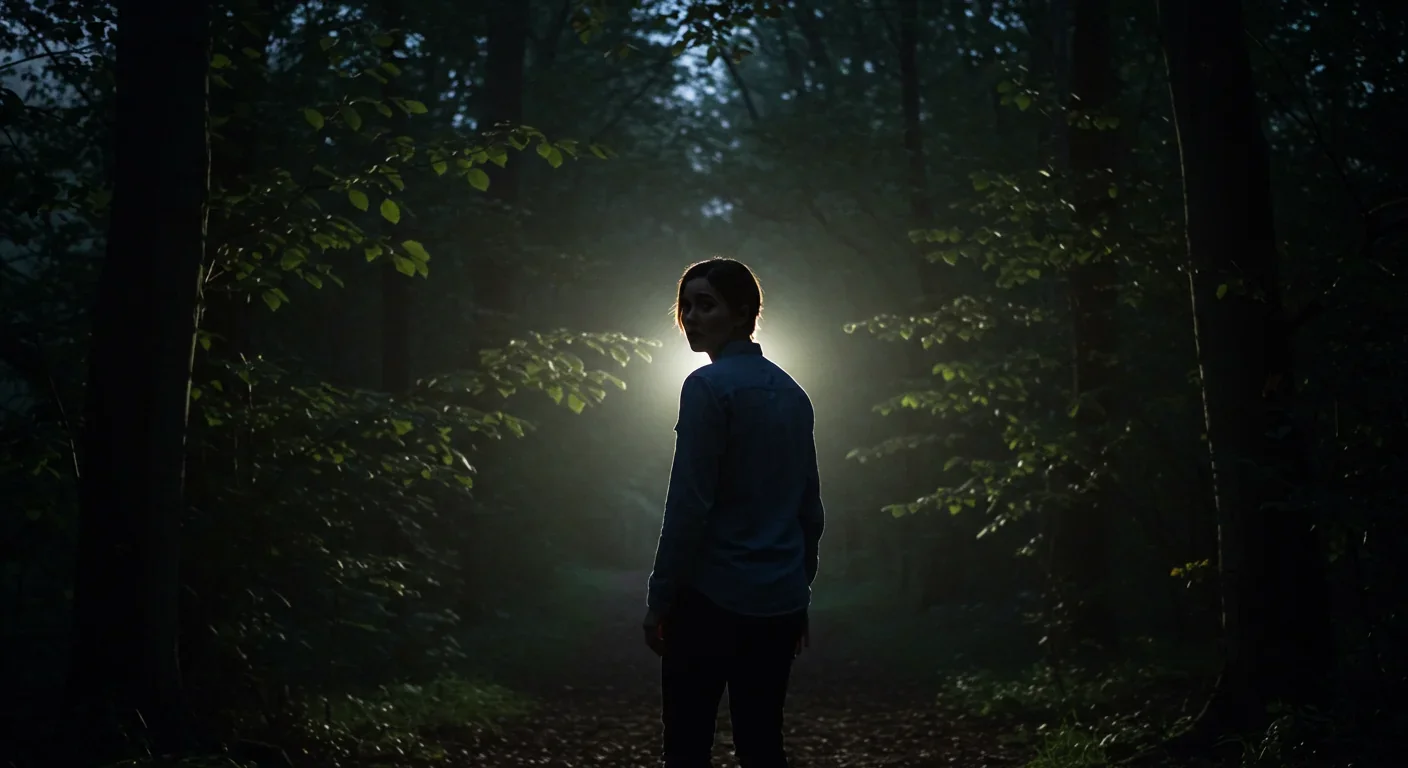Why Your Brain Sees Gods and Ghosts in Random Events

TL;DR: Daily rituals don't just change behavior—they construct identity. Unlike habits that depend on willpower, rituals succeed because they're built on who you're becoming, creating lasting neurological and psychological changes that shape mental health and self-concept.

What if the person you're becoming isn't shaped by your grand ambitions or life-changing decisions, but by the quiet rituals you barely notice? That morning coffee, the playlist you put on before work, the way you wind down at night - these aren't just habits. They're the architects of your identity, quietly constructing who you are, one repetition at a time.
Scientists have discovered something remarkable about rituals: they don't just change what we do. They change who we believe we are. And that distinction? It's everything.
Here's where it gets interesting. Traditional psychology taught us that beliefs shape behavior - you believe you're a runner, so you run. But the research suggests it works the other way around too. Your behaviors, especially the ritualized ones, create your beliefs about yourself.
Behavioral anchors reinforce self-concept in ways that simple task completion never could. When you frame an action as a ritual rather than a habit, you're not just doing something - you're declaring something about yourself. "I run three times a week" is a habit. "I'm someone who honors my health" is a ritual. Same action, completely different psychological weight.
The distinction matters because habits are transactional. You do them because they produce results. But rituals? Rituals are built on identity. They endure when motivation fades because they're about who you are, not what you accomplish.
This isn't just philosophical. Studies show that when people frame behaviors as identity-affirming rituals, they stick with them longer, experience less internal resistance, and report higher satisfaction - even when the actions themselves are identical to those performed as mere habits.
The neuroscience here is wild. Every time you perform a ritual, your brain is literally rewiring itself. Not metaphorically. Actually changing its structure.
When you repeat an action in a consistent context, your brain builds neural pathways that make the behavior increasingly automatic. But here's what makes rituals different from random repetition: the intention and meaning you assign to the action amplify the neurochemical response.
Take cortisol, the stress hormone. Simple techniques like deep breathing or maintaining good posture can reset cortisol levels within minutes. But when these actions are framed as rituals - as intentional acts of self-care rather than stress management techniques - they produce measurable changes in brain chemistry that outlast the immediate moment.

Then there's dopamine, your brain's reward chemical. Habits trigger dopamine when you complete the task. Rituals trigger it when you begin, because your brain has learned that this action affirms who you are. The reward isn't in the completion anymore; it's in the participation.
Research on mindfulness and self-regulation shows that ritualized practices accelerate the brain changes that support new habits. It's like your brain recognizes: "Oh, this isn't just behavior modification. This is identity work."
Professional athletes have known this forever. Serena Williams bounces the ball exactly five times before her first serve, twice before her second. It's not superstition - it's identity reinforcement. Pre-game rituals enhance athletic performance by creating psychological anchors that signal to the brain: "This is who I am. This is what I do."
One director replaced the first 60 seconds of every meeting with a three-question check-in focused on what helped and what blocked progress. Within three months, issues raised increased while rework dropped. That's not process improvement; that's ritual creating cultural identity.
Artists describe similar patterns. Maya Angelou rented a hotel room to write, arriving at 6:30 AM with a Bible, dictionary, deck of cards, and bottle of sherry. She rarely drank the sherry. The ritual wasn't about the objects; it was about becoming the writer.
Entrepreneurs do this too, though they rarely call it ritualization. Morning journaling isn't about recording thoughts - it's about aligning with core values before the day's chaos begins. The ritual declares: "I'm someone who operates from intention, not reaction."
What makes these rituals powerful isn't their complexity. It's their consistency and the meaning assigned to them.
Now here's where rituals become genuinely transformative: mental health.
Regular rituals like journaling or meditation lower anxiety and boost mood. But the mechanism isn't what most people think. It's not just the calming activity; it's the identity stability the ritual provides.
When you're anxious, your sense of self feels fragmented. You don't know which version of you will show up tomorrow. Rituals create predictability in your self-concept. They're behavioral proof that some part of you remains constant.
One engineering lead introduced a daily two-minute grounding practice before sprint planning, leading to clearer problem definition and faster alignment. The ritual didn't just calm nerves; it created a consistent identity anchor for the entire team.
Research on youth mental health has shown that participatory rituals create identity coherence by providing structured opportunities to enact who you want to become. When you're struggling with depression or anxiety, rituals offer a framework for showing up as yourself even when you don't feel like yourself.
The coffee ritual that millions practice isn't really about caffeine. A recent survey found that coffee rituals influence mental wellbeing by creating transitional moments - small pockets of intentionality in otherwise chaotic days.
These aren't escapes from reality. They're reminders of who you are when reality feels overwhelming.
So how do you build rituals that stick? Not with willpower or discipline. Those fail. You need strategy.
First, start absurdly small. A quick gratitude sentence in the morning can be more transformative than a long, unsustainable journaling practice. The power isn't in the duration; it's in the consistency and meaning.

Second, attach new rituals to existing ones. Want to meditate? Do it right after your first sip of coffee. Your brain already knows coffee as a signal; you're just adding meaning to what's already there.
Third - and this is crucial - name the identity, not the action. Don't say "I'm going to exercise three times a week." Say "I'm becoming someone who moves their body." The difference seems subtle, but it changes everything about how your brain processes the behavior.
Fourth, design contextual cues. Habit science shows that automatic behaviors form through repeated practice in stable cues. Same time, same place, same sequence. Your brain loves patterns; give it something reliable to latch onto.
Fifth, build in reflection. Rituals without awareness are just routines. Spend 30 seconds noticing how the ritual makes you feel, what it affirms about who you are. This metacognitive step is what transforms repetition into identity work.
Some practical examples: Set up a morning meditation routine where you spend five minutes in silence before checking your phone. Not because meditation is productive, but because you're declaring: "I'm someone who starts from calm, not chaos."
Or try mindful eating - not the Instagram version, but actually paying attention to one meal a day. You're affirming that you're someone who values presence over productivity.
Create intentional transitions between work and home. A five-minute walk, a specific playlist, changing your clothes - anything that signals to your brain: "We're shifting identities now."
Here's what nobody talks about: rituals can trap you as easily as they can free you.
When rituals become rigid, they stop serving identity and start constraining it. You're no longer expressing who you are; you're imprisoned by who you were. The morning routine that once energized you becomes a cage when it can't evolve with you.
Superstitious thinking is another trap. Athletes sometimes confuse ritual with superstition, believing the specific actions cause success rather than create psychological readiness. The ritual becomes magical thinking instead of identity work.
There's also the perfectionism problem. People build elaborate ritual systems that require perfect conditions. When life disrupts the ritual, they abandon it entirely rather than adapting it. The ritual was supposed to serve them; instead, they serve the ritual.
And then there's spiritual bypassing - using rituals to avoid addressing real problems. Meditating every morning is great unless you're doing it to avoid confronting why you're miserable at work. The ritual becomes avoidance dressed up as self-improvement.
The solution? Hold your rituals loosely. They should feel like coming home, not like homework. If a ritual stops serving who you're becoming, let it go. The point isn't the action; it's the person the action helps you become.
So where does this leave you?
Right now, you already have rituals. You've already been constructing your identity, whether you've been conscious of it or not. The question isn't whether rituals shape you - they do. The question is whether you're choosing which ones.
That morning scroll through social media? That's a ritual declaring: "I'm someone whose day begins with other people's curated realities." Is that who you want to be?
The way you transition from work to home? That's a ritual too. What identity is it constructing?
Over the next decade, as AI and automation reshape what it means to work and live, the human advantage lies in shaping emotional and cognitive conditions. The rituals you build now will determine whether you navigate that transformation from a place of intentionality or reactivity.
Start small. Pick one action you already do and add meaning to it. Not because it'll make you more productive or successful (though it might), but because it'll make you more you. Because in a world that constantly tells you who to be, having rituals that anchor you to who you actually are? That's revolutionary.
Your daily rituals aren't just shaping your habits. They're constructing your identity, one repetition at a time. The only question that matters is: are they building the person you want to become?
Because growth isn't about doing more - it's about becoming more. And rituals? They're how you get there.

Recent breakthroughs in fusion technology—including 351,000-gauss magnetic fields, AI-driven plasma diagnostics, and net energy gain at the National Ignition Facility—are transforming fusion propulsion from science fiction to engineering frontier. Scientists now have a realistic pathway to accelerate spacecraft to 10% of light speed, enabling a 43-year journey to Alpha Centauri. While challenges remain in miniaturization, neutron management, and sustained operation, the physics barriers have ...

Epigenetic clocks measure DNA methylation patterns to calculate biological age, which predicts disease risk up to 30 years before symptoms appear. Landmark studies show that accelerated epigenetic aging forecasts cardiovascular disease, diabetes, and neurodegeneration with remarkable accuracy. Lifestyle interventions—Mediterranean diet, structured exercise, quality sleep, stress management—can measurably reverse biological aging, reducing epigenetic age by 1-2 years within months. Commercial ...

Data centers consumed 415 terawatt-hours of electricity in 2024 and will nearly double that by 2030, driven by AI's insatiable energy appetite. Despite tech giants' renewable pledges, actual emissions are up to 662% higher than reported due to accounting loopholes. A digital pollution tax—similar to Europe's carbon border tariff—could finally force the industry to invest in efficiency technologies like liquid cooling, waste heat recovery, and time-matched renewable power, transforming volunta...

Humans are hardwired to see invisible agents—gods, ghosts, conspiracies—thanks to the Hyperactive Agency Detection Device (HADD), an evolutionary survival mechanism that favored false alarms over fatal misses. This cognitive bias, rooted in brain regions like the temporoparietal junction and medial prefrontal cortex, generates religious beliefs, animistic worldviews, and conspiracy theories across all cultures. Understanding HADD doesn't eliminate belief, but it helps us recognize when our pa...

The bombardier beetle has perfected a chemical defense system that human engineers are still trying to replicate: a two-chamber micro-combustion engine that mixes hydroquinone and hydrogen peroxide to create explosive 100°C sprays at up to 500 pulses per second, aimed with 270-degree precision. This tiny insect's biochemical marvel is inspiring revolutionary technologies in aerospace propulsion, pharmaceutical delivery, and fire suppression. By 2030, beetle-inspired systems could position sat...

The U.S. faces a catastrophic care worker shortage driven by poverty-level wages, overwhelming burnout, and systemic undervaluation. With 99% of nursing homes hiring and 9.7 million openings projected by 2034, the crisis threatens patient safety, family stability, and economic productivity. Evidence-based solutions—wage reforms, streamlined training, technology integration, and policy enforcement—exist and work, but require sustained political will and cultural recognition that caregiving is ...

Every major AI model was trained on copyrighted text scraped without permission, triggering billion-dollar lawsuits and forcing a reckoning between innovation and creator rights. The future depends on finding balance between transformative AI development and fair compensation for the people whose work fuels it.